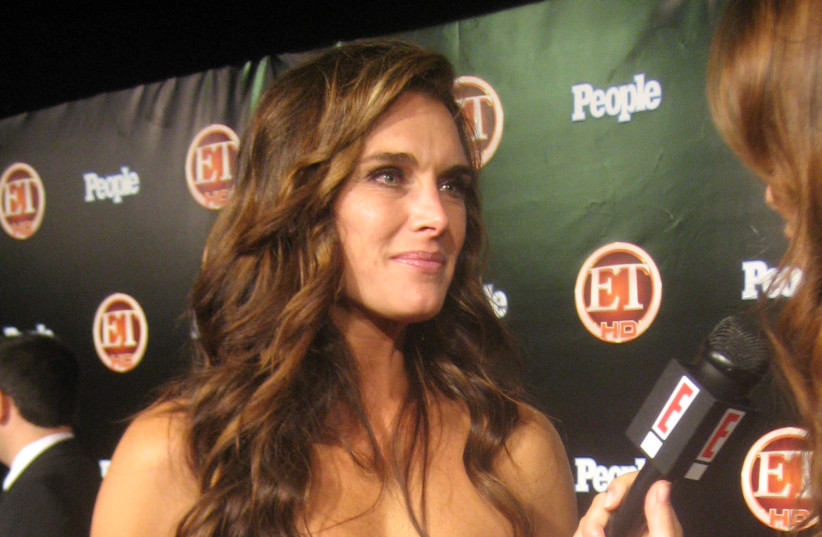Months after it was screened at the Sundance Film Festival and caused a stir, Pretty Baby: Brooke Shields debuted on Disney+ in early April.
This documentary, as its name implies, deals with the story of Brooke Shields and as is typical of docu-biographical films, it consists of interviews with her and her associates as well as archival footage.
Shields was a child prodigy who first appeared in the limelight at a young age, even by child prodigy standards. Already as a toddler, she started modeling and acting in movies and continued to do so in her youth.
Her breakout films are a painful commemoration of the inappropriate norms of arthouse cinema, the advertising industry and Hollywood in the 1970s and 1980s.
The life of Brooke Shields: Career, exploitation and struggles
At the age of 12, Shields was cast as a sex worker by Louis Malle in Pretty Baby, a film that included nude scenes. When she was 15, Calvin Klein cast her in sexualized advertisements for jeans and, when criticized, said he was a "bad boy."

Shields later starred in The Blue Lagoon, where her character walks around naked, and Endless Love by Franco Zeffirilli, in which she was supposed to act in a scene where she loses her virginity, even though she was a virgin when it was being filmed. To spark a more authentic reaction from her, the director hurt her on purpose to squeeze out cries of pain that could seem like ecstasy.
All of this is shown in the first part of the documentary before reaching its most painful moment, which has already become a sensational headline.
When she turned 18, Shields made a brave decision: Stop her career and go study. She was accepted into the prestigious Princeton University and managed to excel. However, when she came back to Hollywood four years later, other young stars took her place and she struggled to find work.
After that, she got a call from someone in the film industry whose name will not be mentioned.
He arranged a meeting with Shields to talk about a potential role but ambushed and raped her instead.
This documentary is the first time Shields ever discussed this traumatic incident.
Lana Wilson directed the documentary in a skillful, respectful and dignified way, presenting Shields' testimony sensitively.
Another important decision: In the entire movie, the nude scenes or nude pictures of Shields are never shown. This decision is significant from both an artistic and ethical view and prevents the documentary from degenerating into exploitation.
It's also easy to call this documentary "the movie where Brooke Shields talks about her rape." It is good crowd bait, but there is a lot more to it than that.
This is an illustration of the blatant and belittling, and sometimes pedophilic, way that popular TV presenters threatened her and others like her, preserving and feeding the toxic culture that harmed her and many others.
The documentary begins with an archival clip where a TV presenter shows Shields in diapers and talks to the audience about the "pretty baby."
After that, we see Johnny Carson, who was at the time the most beloved TV presenter in the US but today we can admit he was a creep and a douchebag, and he underestimated the fact that Shields excelled at Princeton.
"Her biology professor today gave her an A in anatomy: Hers!"
Johnny Carson on Brooke Shields
"Her biology professor today gave her an A in anatomy: Hers!" Carson joked with a smug smile.
Shields got an A in other classes thanks to her sharp mind, eloquent articulation and other intellectual prowess.
All of these are reflected in the documentary, which commemorates how Shields was one of the first US celebrities to speak publicly about postpartum depression, and she did it in a way that opened the door for others and made the discourse around it acceptable.
Around the same time, Tom Cruise said to her in the media that she didn't understand what led to depression and how to treat it. She responded sharply with an opinion article in The New York Times with the unforgettable response that Cruise should focus on the war against aliens.
The actor later apologized and probably regrets them even now.
Pretty Baby: Brooke Shields lasts two hours and fifteen minutes and is a fascinating watch. The most interesting part arguably comes at the end, during a routine dinner with Shields, her partner and two daughters.
Here, she speaks with her daughters, both teenagers, about her nude scenes in Pretty Baby compared to scenes in Euphoria, and about how she was photographed in her youth compared to the photos her daughters post on Instagram.
They ask her about what happened, what changed and what hasn't changed in the toxic culture. This reminds us all that this documentary is not only a film about a difficult past, but one that raises difficult questions about the future.
Archival footage reminds us that if given a proper chance, Shields has always proven that above all else, she is a superb actress with perfect comedic timing.
In recent years, Shields has mostly been getting minor roles, but maybe this documentary will help her get the role of a lifetime she deserves. Jennifer Coolidge has already shown it's never too late. Now it's Brooke Shields' turn.
